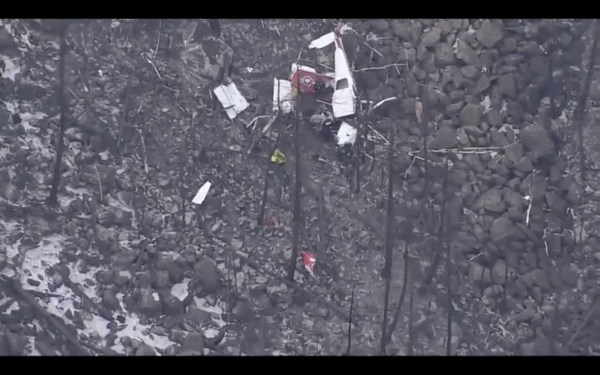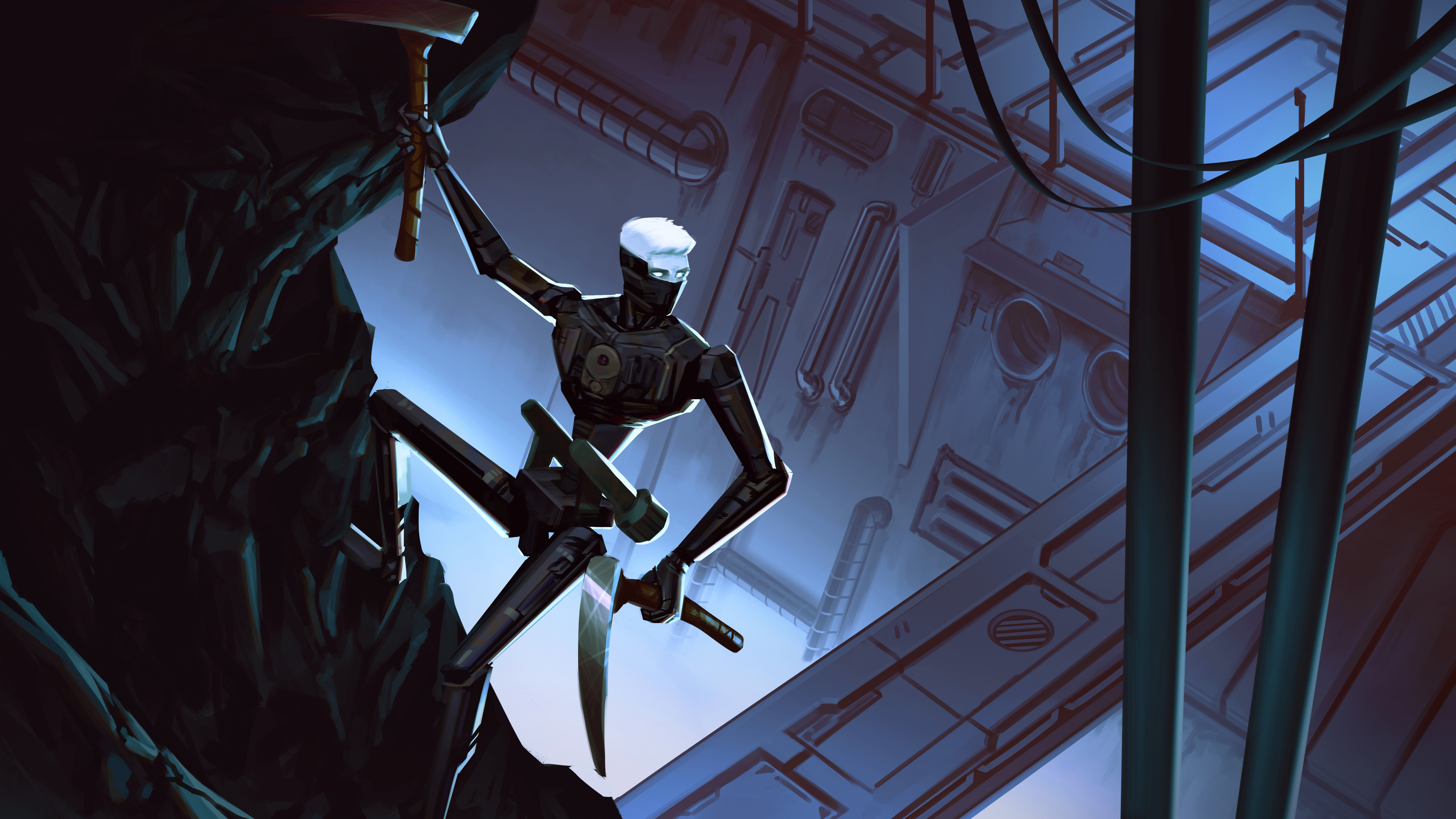
I knew I was afraid of heights going into Lorn’s Lure. It's a fear that I’ve always mined for thrills in games, climbing high towers and leaping off them for the adrenaline. Of course I was going to play a sci-fi mountaineering adventure through the bowels of an impossibly massive brutalist megastructure. What I was not prepared for was discovering that I might also be afraid of the dark. And tight spaces. As Lorn's Lure constricted into a choking warren of pitch black tunnels, it taught me new and exciting forms of dread.
I was least prepared to discover that over the course of its eight massive levels, Lorn’s Lure evolves into a twitchy, panicky first-person Celeste, full of air-dashing, wall-jumping and precise stamina management. Realizing that, I shouldn’t be surprised that I died over 1200 deaths (approximately 110 per hour) before the credits rolled. And I’ve only just begun unlocking the optional ‘simulation’ levels—equivalent to Celeste’s brutally tough B-side stages. But I'm getting ahead of myself.
Pleasantly haunted
I’ve been excited for Lorn’s Lure ever since playing an early prototype in 2021’s excellent Haunted PS1 Demo Disc. Inspired by the amazing architectural panoramas of classic ‘Cyber dungeon quest’ manga BLAME!, Lorn’s Lure is a low-fi first-person platformer about an android following a ‘glitch’ in their vision into the guts of a seemingly endless industrial structure. All concrete and crumbling pipework, with ruins of civilizations lining the halls through strata millennia deep. While there’s an interesting story here, it’s told through the environment and fragments of text, with only a couple characters encountered in your solitary exploration.
There’s 10,000 opportunities to die here, alone in the darkness. While there’s no monsters or combat, gravity and hubris are powerful enough antagonists. Fortunately you’re a robot and good at math, so deaths are framed as failed simulations. Goof up, and you immediately rewind to your last solid foothold, trying fiddly jumps as many times as needed, keeping frustration low outside of a few endurance segments. That doesn’t mean that it’s easy: Lorn’s Lure pushed me hard, and I had to take a few breaks to cool down. But the tension and ever-changing environments kept me coming back once I’d caught my breath and centered myself.
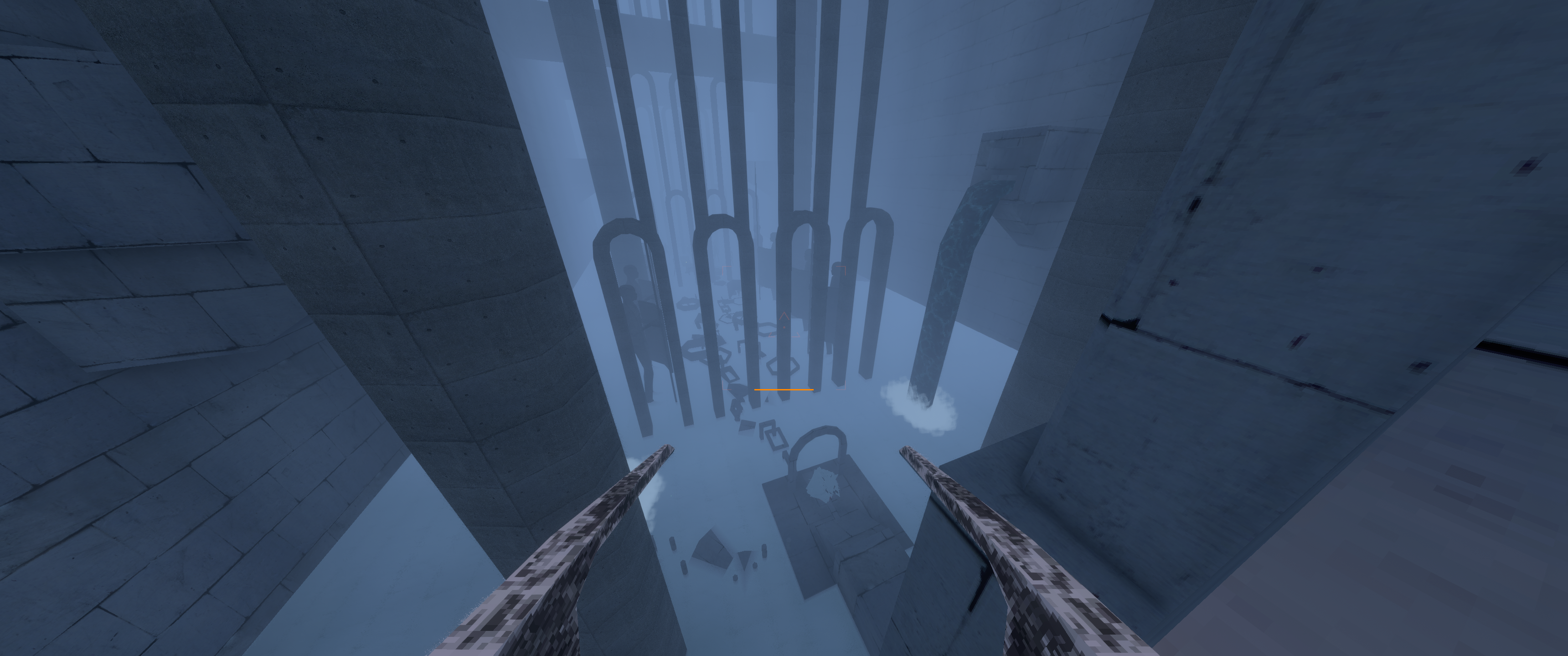
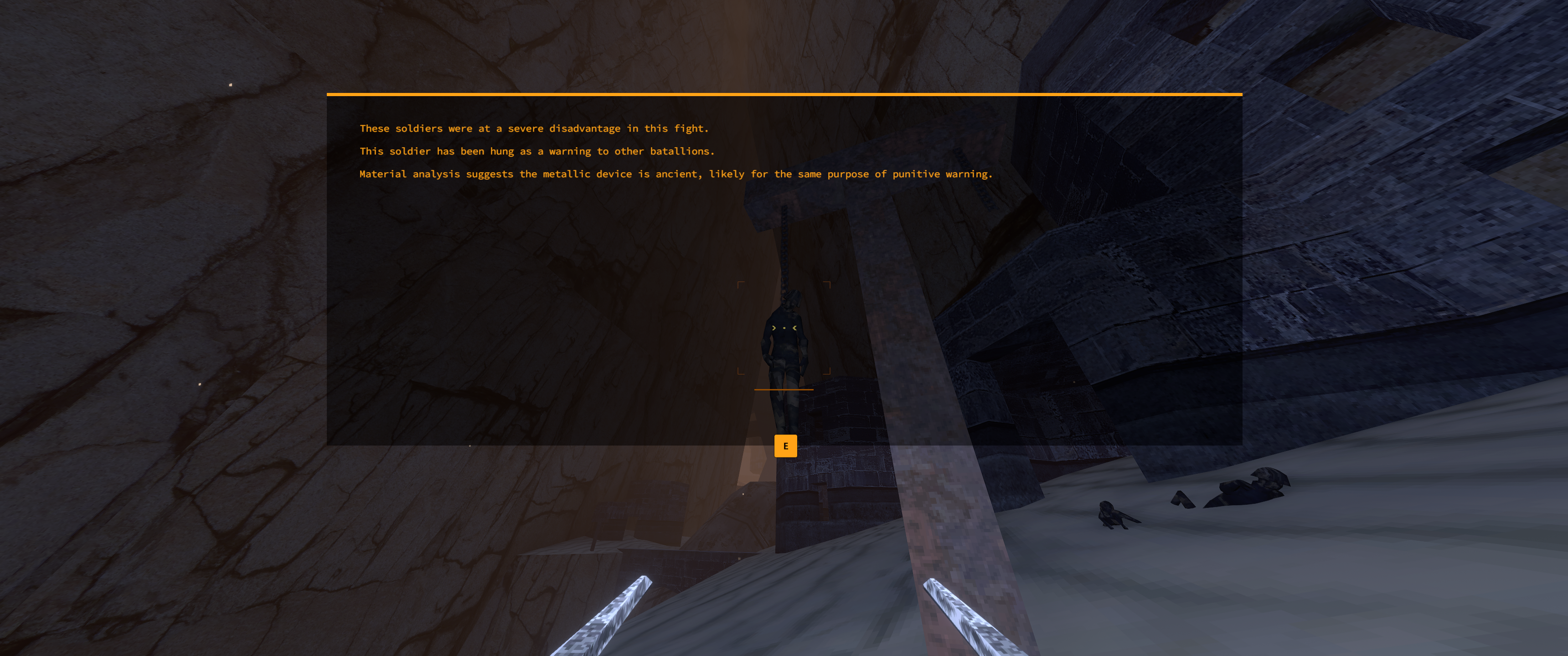
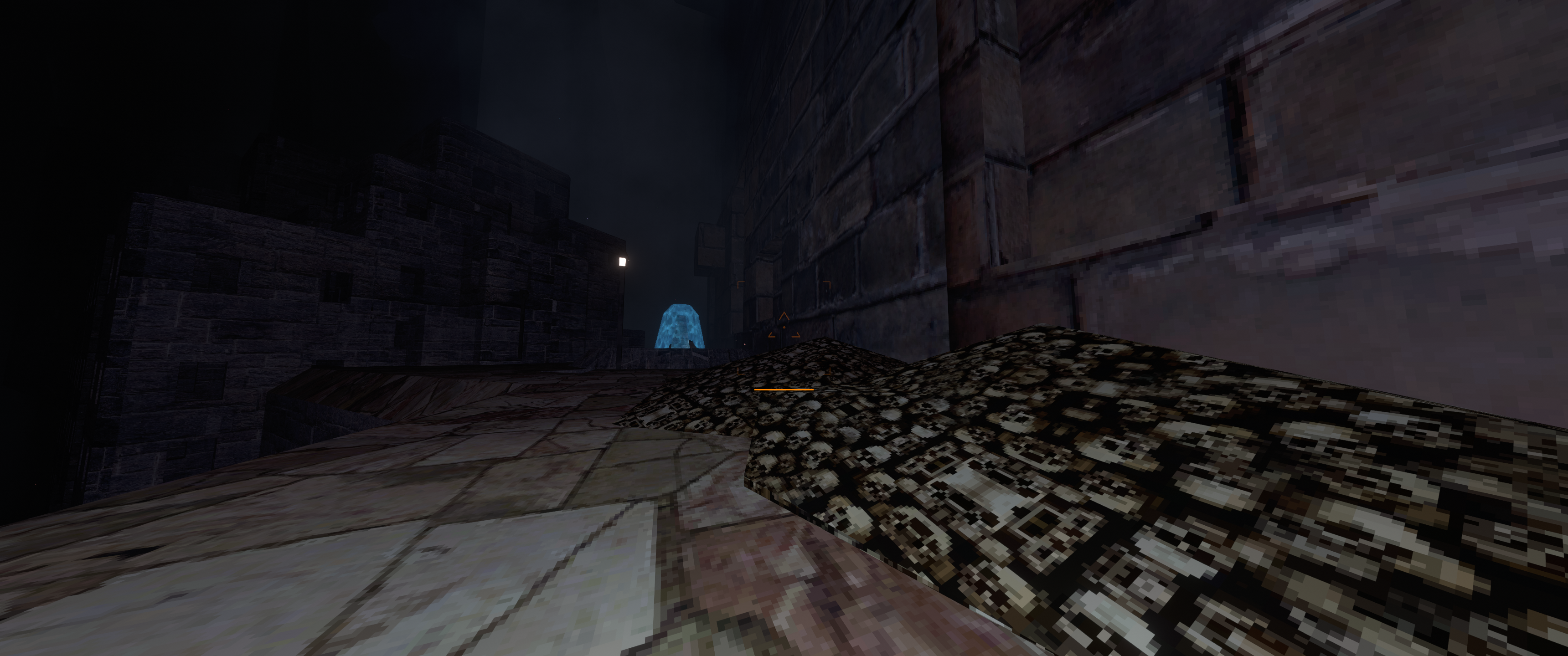
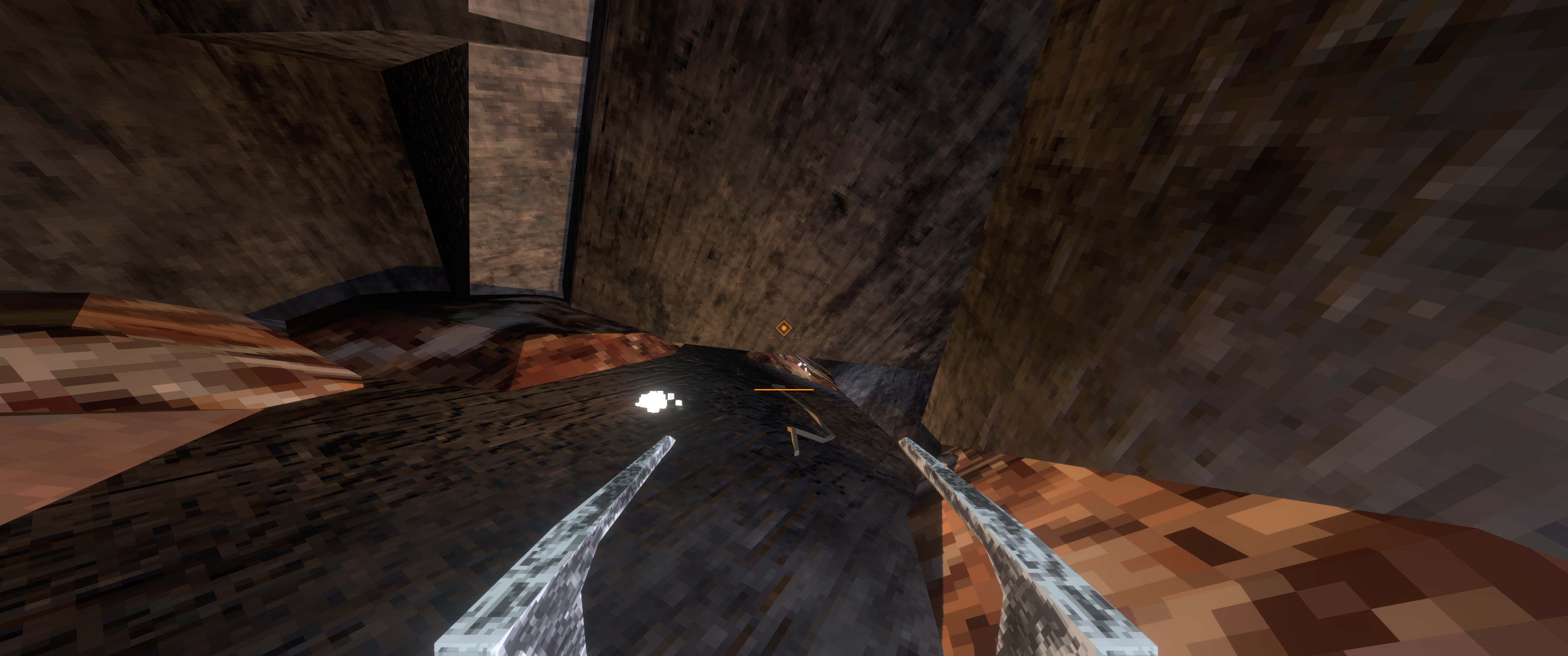
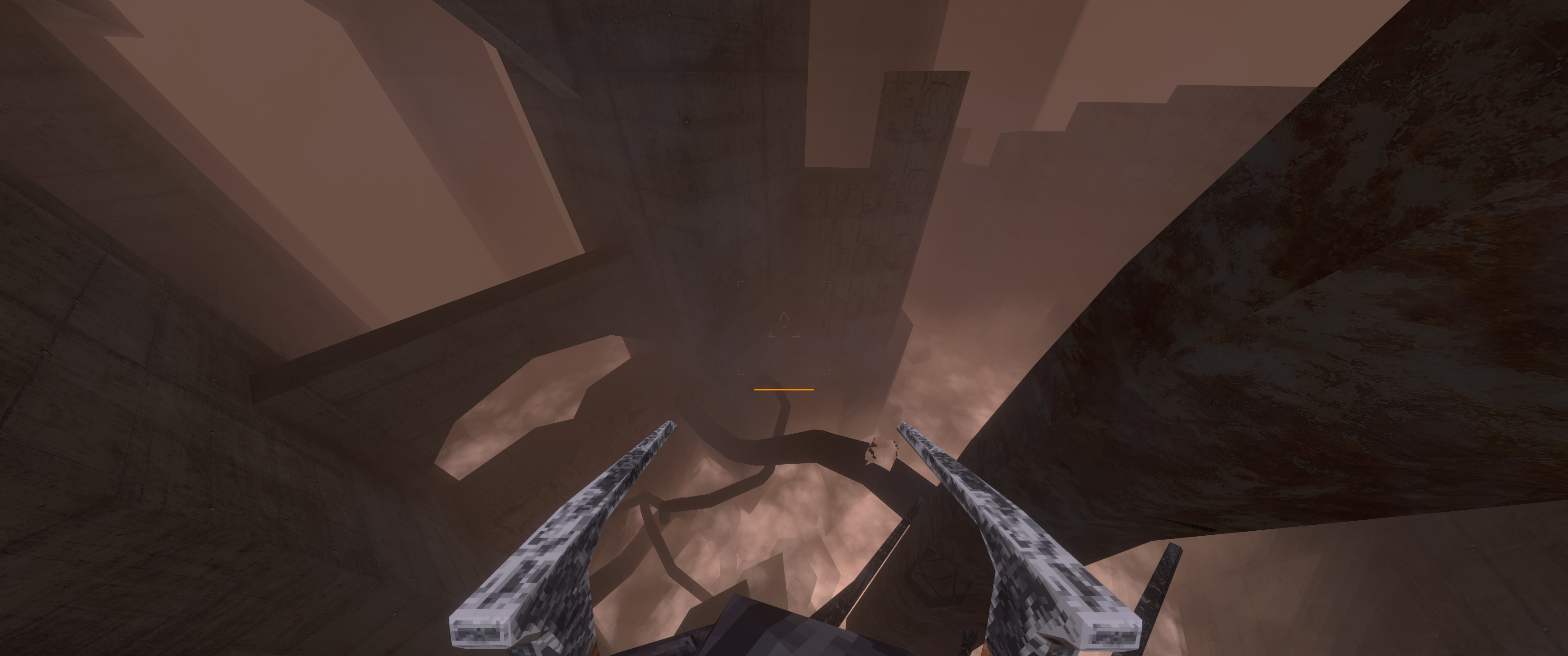
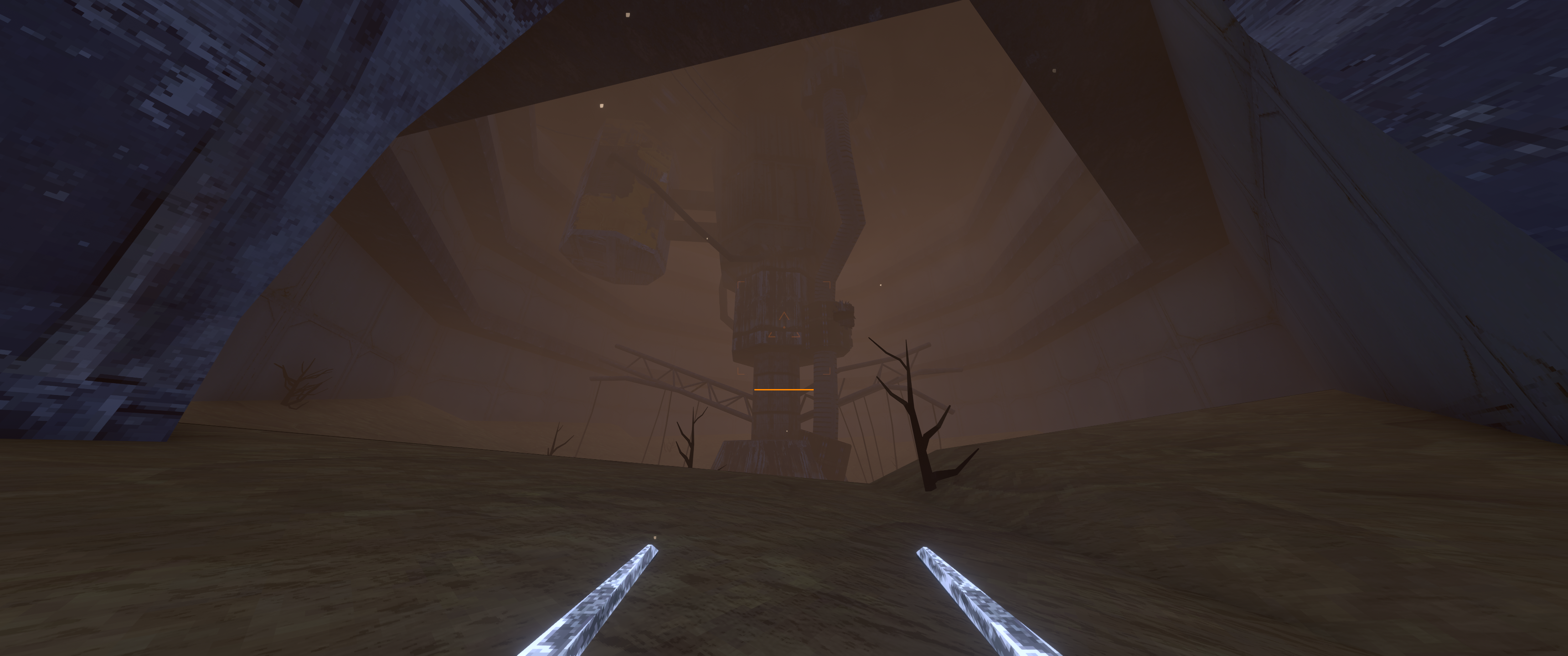
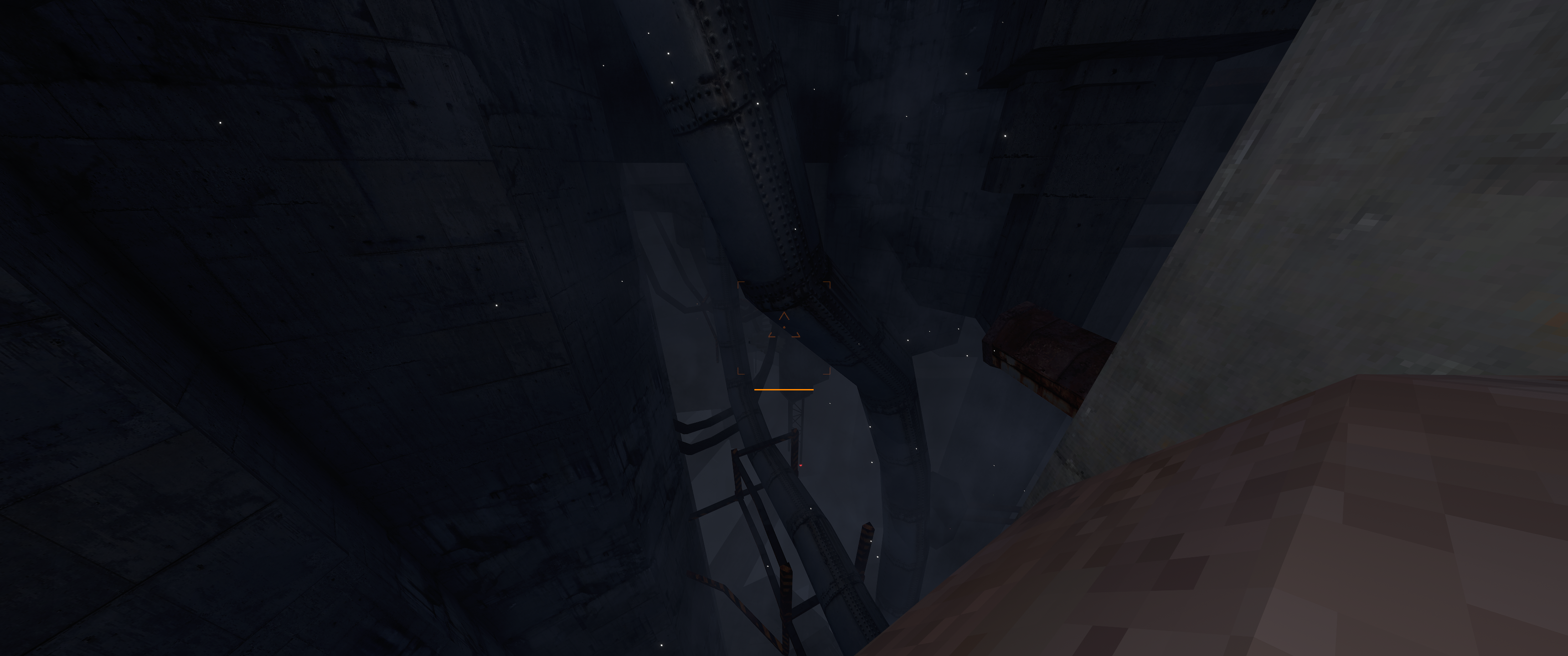
While I was stubborn enough to navigate through the whole game under my own power, there is a hint system that will point you to the next key location you’ll need to climb to, but don’t expect much else in the way of help. Some of the jumps the game demands in the later levels are incredibly precise and high pressure, even once you’ve figured out exactly what the game is asking of you. That brain-teasing is what hooked me. Lorn’s Lure likes to present you a distant, visible destination and a tangled mess of outcroppings, pipes and flat concrete walls (which you can traverse with your climbing picks at the cost of stamina) between you and it, and then leave you to figure out the path.
There’s often multiple workable routes (the number increasing as you unlock more movement techniques) but you’ll still have to stop and ponder how you can use your tools to navigate from A to B. Doubly so when you’re hunting for the optional crystals scattered around each level, hidden in out-of-the-way places that require full mastery of the game’s movement. Like Celeste’s cherries, they’re entirely optional, but collecting all the crystals in a chapter unlocks a bonus stage which really drills deep into the game’s mechanics, giving you just one life (any mistake zips you back to the start) to clear a precision obstacle course inspired by the chapter it’s attached to. After a dozen hours I’ve only seen two of a total eight.
Falling down
Each of the eight chapters (none taking me less than an hour to complete the first time through, and several clocking in at 90+ minutes) feels like a completely different experience. The first level is a slow exploration through crumbling pipeworks and flat concrete structures, letting you get used to the climbing picks. The second stage is a straight vertical descent through a mass of machinery and rebar hanging from a ceiling miles above, followed by a tricky return to the top. The third stage is a harrowing caving expedition through crawling-height tunnels lit only by your own flares. Each has a new aesthetic, a new flow to its gameplay and navigation, and the low-fi PSX aesthetics have allowed solo developer Rubeki to build environments that live up to the manga inspirations, full of implied history and layers of decay.
I don’t want to spoil the later levels, as the thrill of discovering new and strange environments to explore was such a potent lure to keep me coming back to this desolate, brutalist labyrinth. Completing the game does reward you with the option to explore its locations with your full end-game set of moves, and previously fraught navigational challenges turn into a fun jungle gym. Crystals you may have missed become easy to pick up. It's a cathartic treat if, like me, you die 300 times in the final chapter alone. Speedrunners are going to have a field day once they master the movement tech here, and I’m already excited to watch what more skilled players can do once they’ve experimented a little.
It’s just a deeply compelling experience. Lorn's Lure got its (climbing) hooks into me and has been one of the most distinct games of the year so far. Better yet, it might be one that grows over time. The developer has mentioned plans to roll out a level editor once any post-launch bugs and issues are hammered out. I’m not sure if user-made levels will be able to recapture that anxious thrill of barely making narrow jumps across yawning chasms, but I’m excited to see them try, and for my fears to be tested once more.
Lorn’s Lure is out now on Steam, and I hope you join me on this downward spiral.



